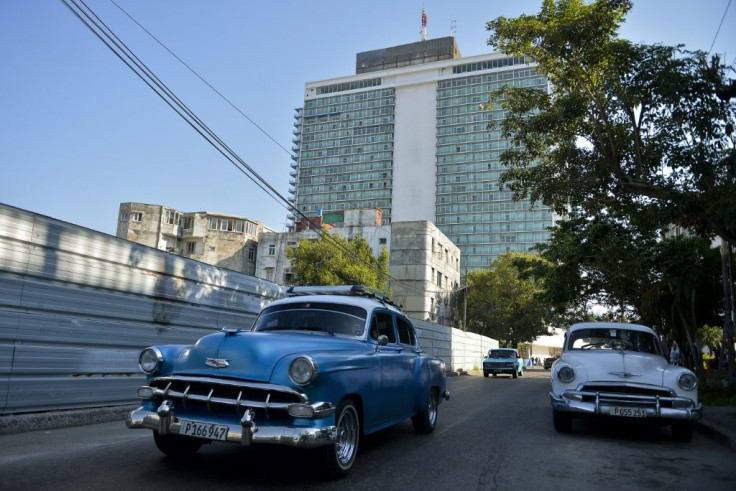UN Assembly Condemns US Embargo On Cuba, For 28th Time

The UN General Assembly on Thursday condemned the nearly 60-year-old US embargo on Cuba for the 28th year in a row, calling for an end to it by a vote of 187 to three.
Only Israel and Brazil voted with the US against the resolution. Two other US allies -- Ukraine and Colombia -- abstained.
First imposed on October 19, 1960 in response to Havana's nationalization of US-owned oil refineries, and extended in 1962, the embargo is an enduring legacy of the Cold War hostilities between the two countries.
It was denounced as "anachronistic" and "inhumane" during two days of debate by the General Assembly.
In 2016, the US abstained for the first time in the annual UN vote amid a historic rapprochement with Cuba under former president Barack Obama.
But diplomatic relations between the two countries have turned cold since Donald Trump's arrival in the White House.
Cuban Foreign Minister Bruno Rodriguez charged there has been "an escalation in aggression against Cuba" under Trump, whose government, he said, "does not hide its intention to economically asphyxiate Cuba and increase the damage, shortages and suffering of its people."
Havana claims the embargo has caused $138 billion in damage to the island's economy, in today's dollars.
The US ambassador to the United Nations, Kelly Craft, blamed the Cuban regime, accusing it of abuses against its own people, and of sowing regional instability.
"We do not accept responsibility for these abuses," she said.
Brazil, now led by the ultra-conservative Trump ally Jair Bolsonaro, voted for the first time with the United States. Last year, only Israel joined the US in voting against the resolution.
Brazilian Foreign Minister Ernesto Araujo said its decision to vote against Cuba was based on the need to combat communism.
"The influence that Cuba has over developing countries within the UN system is an embarrassment and should be stopped," Araujo said.
Colombia, which changed its vote from backing Cuba to abstaining, said that decision was prompted by Havana's "hostility towards Colombia" and its support for Venezuelan President Nicolas Maduro.
lbc/jm-sst/acb
© Copyright AFP 2024. All rights reserved.




















